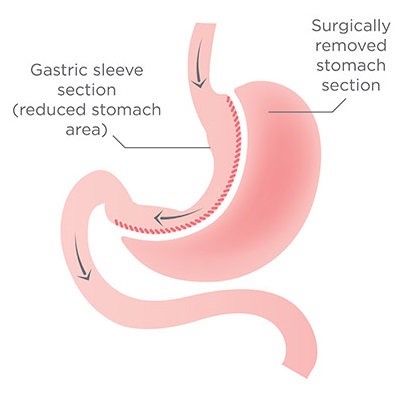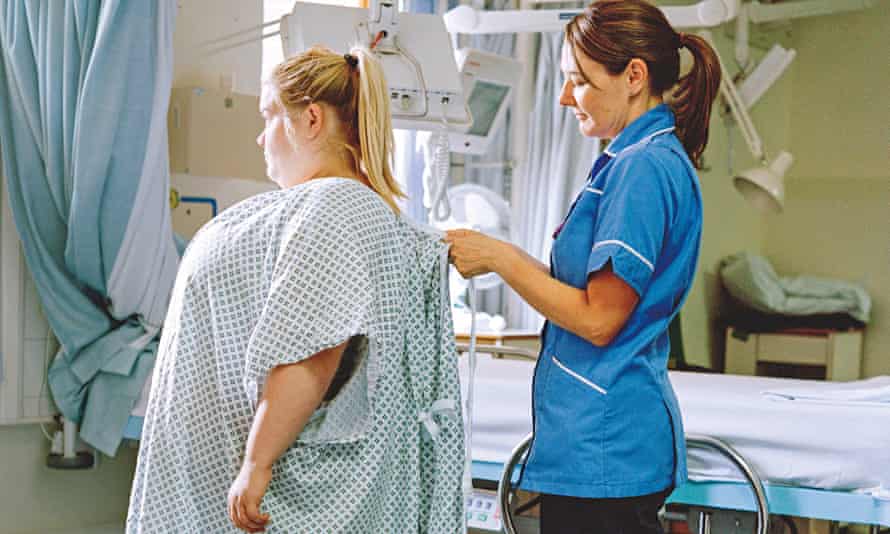Do you know how tall you are? How much you weigh? If you do, you can easily figure out your Body Mass Index or BMI—the measure of body fat based on height and weight. It is calculated by dividing a person’s weight in kilograms by their squared height in meters. Split into categories, it serves as an indicator for possible health problems concerning weight.
For many adults, the ideal BMI falls between 18.5 and 24.9. This indicates a healthy weight range. The official statistics of the National Health Service (NHS) for the years 2018 and 2019 show that the majority of adults in the UK could be classified as overweight or obese, which means that they had a BMI of at least 25. People of these weight categories often undergo bariatric surgery to keep their health in check.
What is bariatric surgery?
 The word bariatric is defined as what is related to or what specializes in the treatment of obesity. Bariatric surgery has been around for many years and has many types. However, vertical sleeve gastrectomy, also known as sleeve gastrectomy or gastric sleeve, is one of the most commonly performed surgeries for obesity around the globe. Surgeons recommend this surgery for people with a BMI greater than 34.
The word bariatric is defined as what is related to or what specializes in the treatment of obesity. Bariatric surgery has been around for many years and has many types. However, vertical sleeve gastrectomy, also known as sleeve gastrectomy or gastric sleeve, is one of the most commonly performed surgeries for obesity around the globe. Surgeons recommend this surgery for people with a BMI greater than 34.
Gastric sleeves are normally keyhole surgery. This kind of surgery, carried out under general anaesthetic, is minimally invasive—only a small incision is made in order to access the body’s interior. During the procedure, 75-80% of the stomach is removed, while the rest of it is converted into a long, thin tube made to look like a sleeve.
This procedure aims to help obese patients lose a substantial amount of weight by restricting a person’s food intake. The size and capacity of the stomach are reduced, as well as the production of Ghrelin, the hormone that increases food intake. As this can lead to significant weight loss, many conditions relating to obesity are improved such as high blood pressure, type 2 diabetes, heart disease, and high cholesterol.
How much does a gastric sleeve surgery cost?
 Gastric sleeves are one of the most costly bariatric surgeries in the UK. They typically cost between £7,000 and £11,000—two to three times more than other procedures such as the gastric balloon, gastric band, and gastric bypass. Ramsay Health Care in London provides a complete list of weight loss surgeries they perform, along with the respective costs. There are many reasons as to why a sleeve gastrectomy costs so much.
Gastric sleeves are one of the most costly bariatric surgeries in the UK. They typically cost between £7,000 and £11,000—two to three times more than other procedures such as the gastric balloon, gastric band, and gastric bypass. Ramsay Health Care in London provides a complete list of weight loss surgeries they perform, along with the respective costs. There are many reasons as to why a sleeve gastrectomy costs so much.
The initial cost of getting a gastric sleeve is already very high, as the equipment used for cutting and stapling is very expensive and can only be used once. The high costs of general anaesthesia are also a factor, which can increase the consumable costs needed to complete the procedure.
Other factors that influence the cost include the time spent in the hospital. The operation itself can take one to two hours to complete, with additional confinement of one to two days.
For operations such as this, hospitals usually charge patients for medical equipment warranties and “return to theatre” warranties, which are needed when a patient must be brought back to the operating room. These protect patients from high costs of extended stays should any emergencies or complications arise from the situation.
Should you get a sleeve gastrectomy?
 As this procedure is a major type of surgery, it is advised to resort to it only after trying to lose weight through healthy diets and regular exercise. Nevertheless, the NHS has it covered.
As this procedure is a major type of surgery, it is advised to resort to it only after trying to lose weight through healthy diets and regular exercise. Nevertheless, the NHS has it covered.
Entitled to the surgery on the NHS are people with a BMI of 40 or higher, or a BMI of 35-40 and the need to lose weight in order for problems with obesity to improve. Undergoing a sleeve gastrectomy on the NHS is also an agreement to long-term follow-ups, as well as a confirmation that all other methods to lose weight have been tried but to no avail. It is advisable to speak to a surgeon before deciding to go for surgery, as it is a big responsibility on top of possible risks.
The risks and responsibilities of getting a gastric sleeve
Getting a gastric sleeve may pose potential health risks. Right after the surgery, excessive bleeding, infection, blood clots, and stomach leaks are possible. In the long term, it is also probable that a person who has undergone this surgery may experience hernias, gastroesophageal reflux, low blood sugar, malnutrition, and vomiting, among other conditions. However, one must not fret, as there are many ways to avoid such complications before the surgery. Physical activity programs may be enforced. Restrictions may also be put on food intake, in order to prepare the body for what it will be going through.
On its own, a sleeve gastrectomy is not a cure for obesity. It must be partnered with permanent lifestyle changes and consistent progress in order to ensure the best results. Regular exercise and a healthy diet must be continued not only after the surgery but for a lifetime. This must be done to make sure that past habits don’t come back, which may cause weight to be gained once again. Appointments must also be made in order to monitor health post-surgery and get necessary support or advice. Getting a gastric sleeve is not only a one-time thing that is easy to get over. It is a lifetime commitment to living a healthy life.

